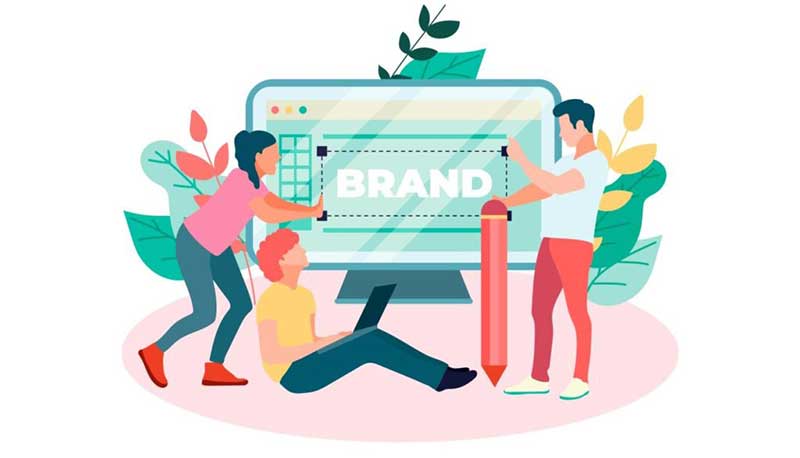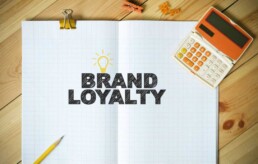Globalization had long back set the ball rolling for a market in which the consumer is the king. In addition, the throat-cutting competition has made the entire purchasing process a joy ride for businesses. The entire promotion drill goes through a number of touchpoints before businesses acquire a new customer.
The clamor for sales is core to every business; no doubt, and expanding the consumer base is vital to every business. However, among all the brouhaha over new customers, businesses tend to overlook the elixir of any business – the loyal existing consumers.
The importance of existing consumers has only been partially reconciled with by digital marketing experts. It is only after the pandemic that businesses found gaining new customers difficult. This brought about a paradigm shift in branding strategy where the potential of a robust brand loyalty has been realised and brands are now working towards retaining and satisfying existing consumers.
What is a brand?
In simple terms, the brand is when a product, service or any other entity gains an identity. More than packaging, logo, tag line, and other such elements, a Brand is the story behind the identity.
What is loyalty?
Loyalty is a feeling or a sense of belonging towards some individual or something. It is an expression of affection and faith in someone or in something.

What is Brand Loyalty?
Both definitions above make it absolutely easy to understand what brand loyalty is. Having a sense of affection, attachment, or belonging towards one particular brand, which makes a consumer use the same brand products again and again is known as brand loyalty.
Every business deeply desires to have a customer base that is unique to them and uses only their product. Alas! The process of building brand loyalty isn’t akin to street strolling but is a task as colossal as climbing a mountain. So that brings us to the most critical question: How online marketing strategists build brand loyalty and what marketing strategies should be utilized to ensure customers last long enough.
How to Build Brand Loyalty?
As a creative branding and marketing agency, we have identified and applied dynamic marketing strategies that intertwine a wide range of touchpoints and convey the “you are very important” message to the consumers.

Comprehensive steps towards fostering a thriving sense of loyalty towards a brand:
Offering value for money:
Forget brand loyalty. Marketing strategists can’t even build a brand identity if their clients can’t offer value-for-money for their products and services. If a business fails in refining its product consistently, it’s difficult to build brand loyalty. Redefining the USPs towards designing a problem-solving product is the way forward.
Providing a 360-degree customer experience:
In 2021, customer satisfaction is not limited to offering a value-for-money product but includes exhaustive and inclusive customer services. Almost 60% of customers have expressed their willingness to utilize brands that have comprehensive after-sales service. Customer service is neatly attached to how brands treat their customers. The treatment becomes the most prominent base of loyalty building.
Nurturing Brand Ambassadors:
The brand needs a public face for customers to engage with and address their concern to. They expect such an entity to have expert knowledge about the company’s products and services. The marketing strategy must focus on building a force of such brand ambassadors. These brand ambassadors can engage with potential consumers online or through public communication to build trust in the product or the service. Employees of the business who effectively engage with consumers imparting valuable information improve the credibility of the brand in public space.

Encouraging a two-way communication:
Responding to the customer’s queries through various touchpoints impresses customers. The two-way communication helps brands build faith as consumers understand that brands are ready to listen to them and willing to solve their problems. Therefore, developing customer-engagement should be part of the branding strategy.
Designing versatile brand campaigns:
Discard templates and design your own unique branding strategy with a promotion campaign that is truly unconventional and atypical. Exceptional branding strategy boosts brand awareness and gains repeated interest in products. Brands needn’t complicate the business with promotion and therefore should acquire third-party experts who have expertise in designing a long-time branding campaign with tangible rewards and privileges to create a sense amongst customers that they are getting something extra.
Compartmentalizing loyalty:
You may already have a loyal customer base but your reward program or incentives need to be standardized. Loyalty should be rewarded in accordance with the nature and level of loyalty along with the association span. Therefore, segregation of customers into 2 or 3 segments is critical to strengthen the loyalty base.
Investing in mobile marketing strategies:
Is there any better way to connect with the customer than engaging through smartphones? Mobile marketing is one of the most effective ways to build brand loyalty through constant, direct, and expert messaging that constantly solves consumer problems and maximizes the satisfaction level of customers. Mobile marketing thus allows brands to address customers’ needs at a personal level.
Seeking feedback:
Marketing strategists don’t have to remain inaccessible. In fact, in order to add value to the brand and to initiate the process of building brand loyalty, brands must come across as entities that are open to listening to their audience. Hence, encouraging your customers to share feedback. Brands can also choose to respond to feedback and reviews to showcase it is always there for customers. That also allows brands to showcase the success stories of customers.
Conclusion:
The global magnitude of the pandemic and lockdown that followed explained to the marketing strategists world across the hard way that customer retention strategy is as deeply connected with the growth of the business as customer acquisition. Brand loyalty is one of the most critical aspects of a long brand life span and it happens with the consistent faith of existing customers.
Related Posts
Website designing and website development, what’s the difference?
To put it out there neatly, web designing and web developing are intertwined, so much so, that it…
To What Extent Has Social Media Facilitated Globalization
We have always are led to believe that social changes take time and bringing about social changes…
The role of social media in the recruitment process
One thing that is omnipresent evidently after God is social media. Only the almighty can compete…




